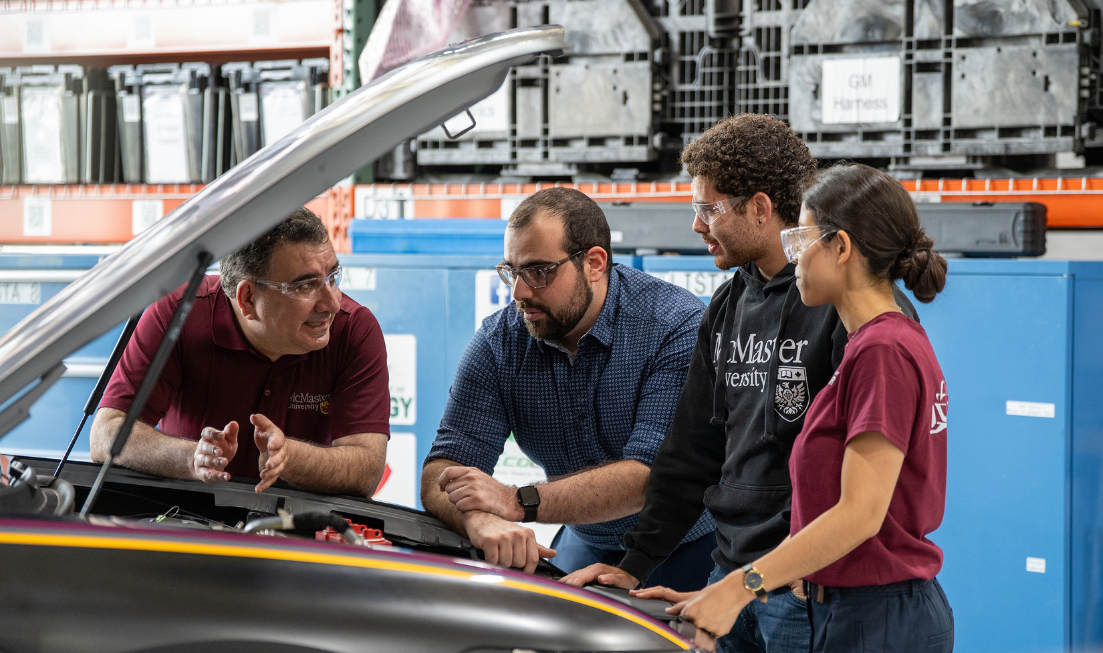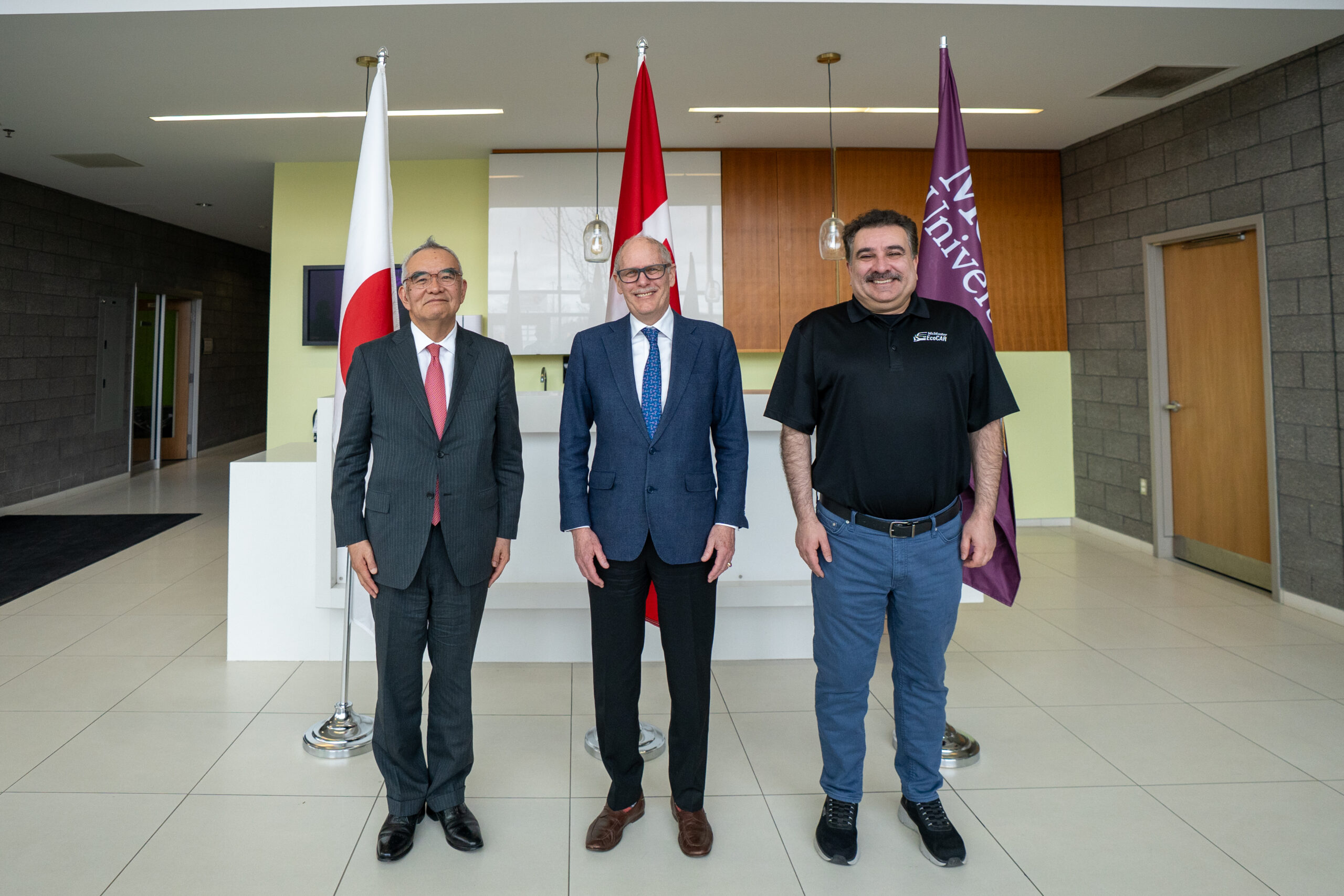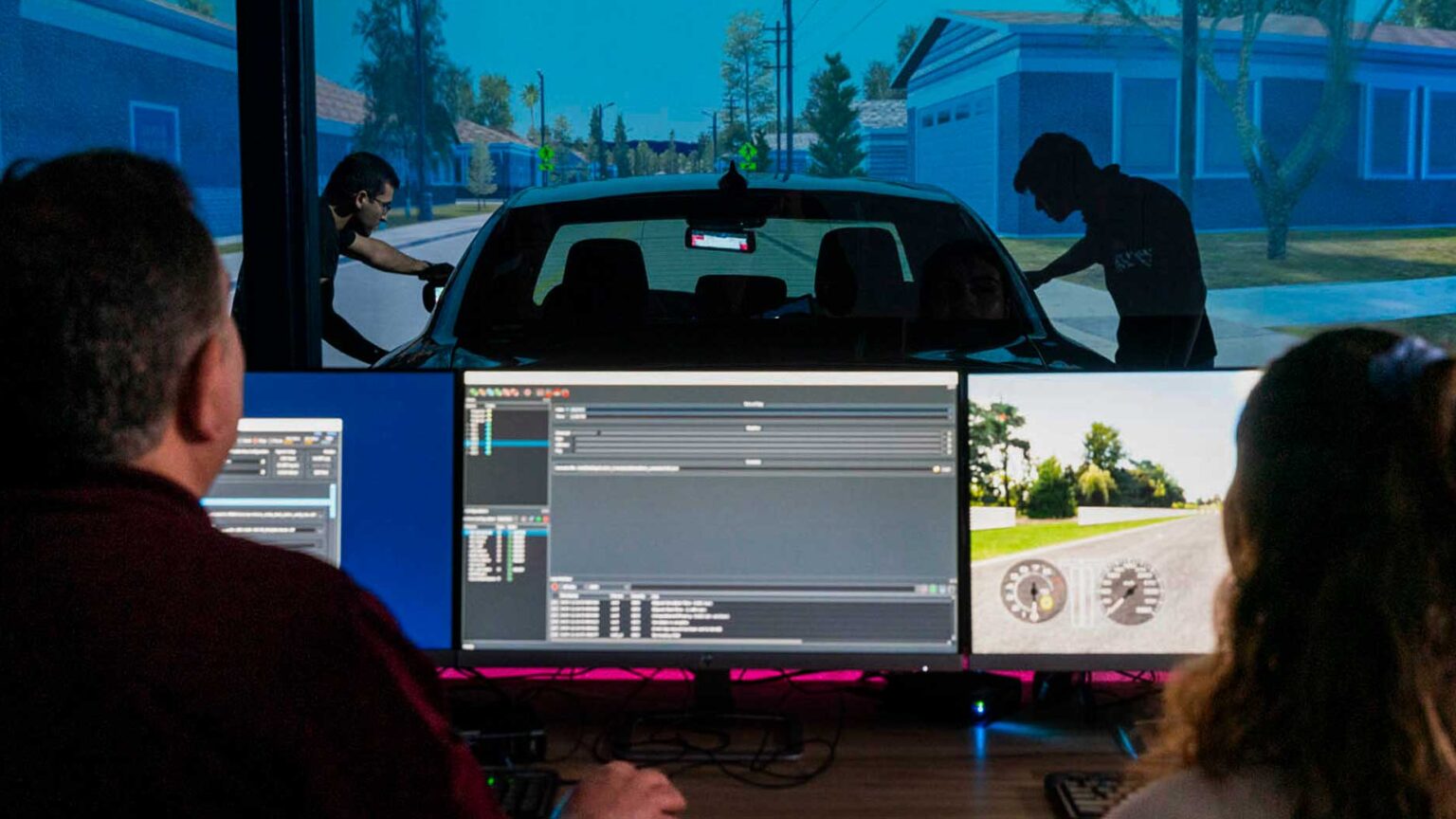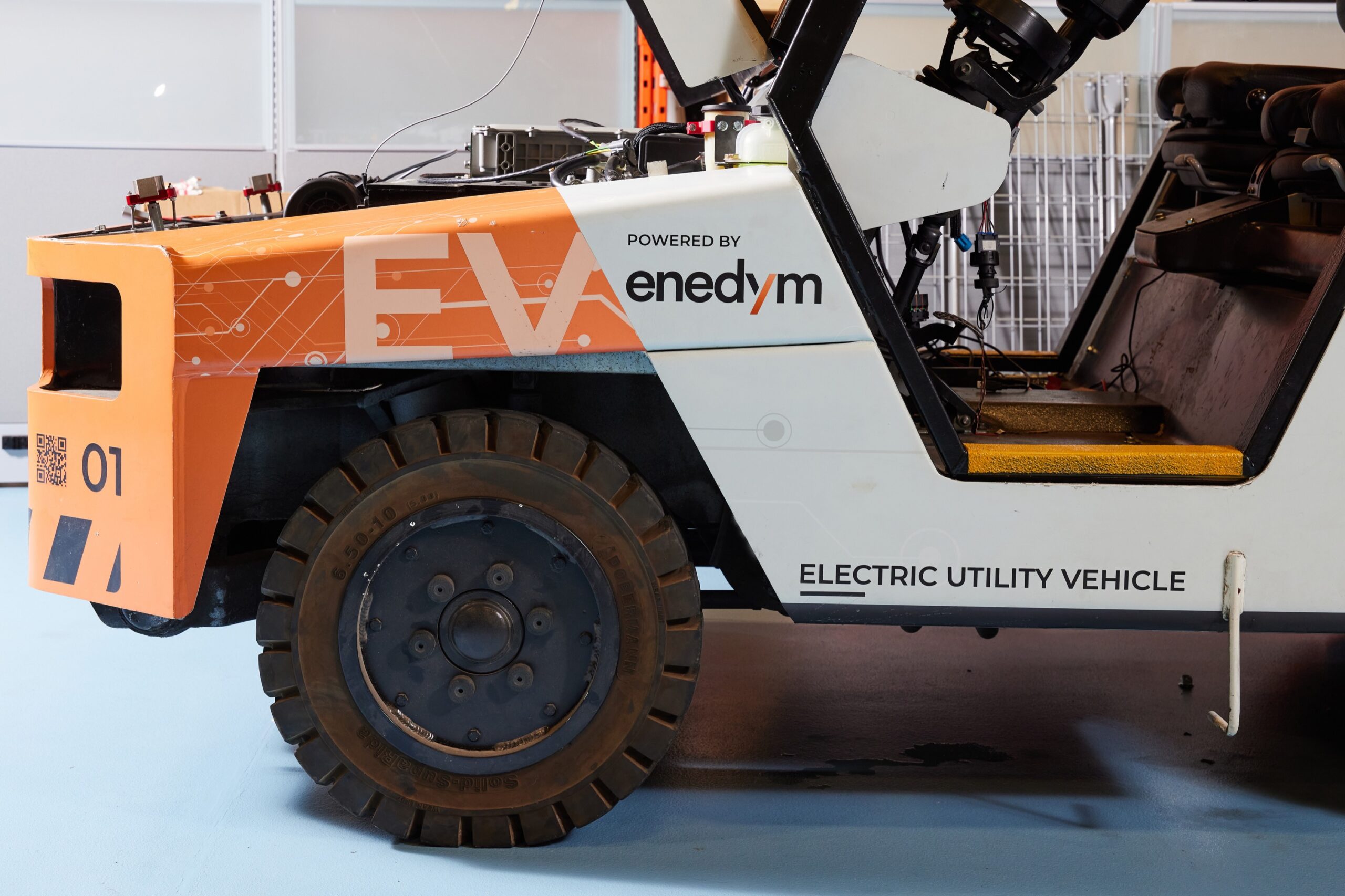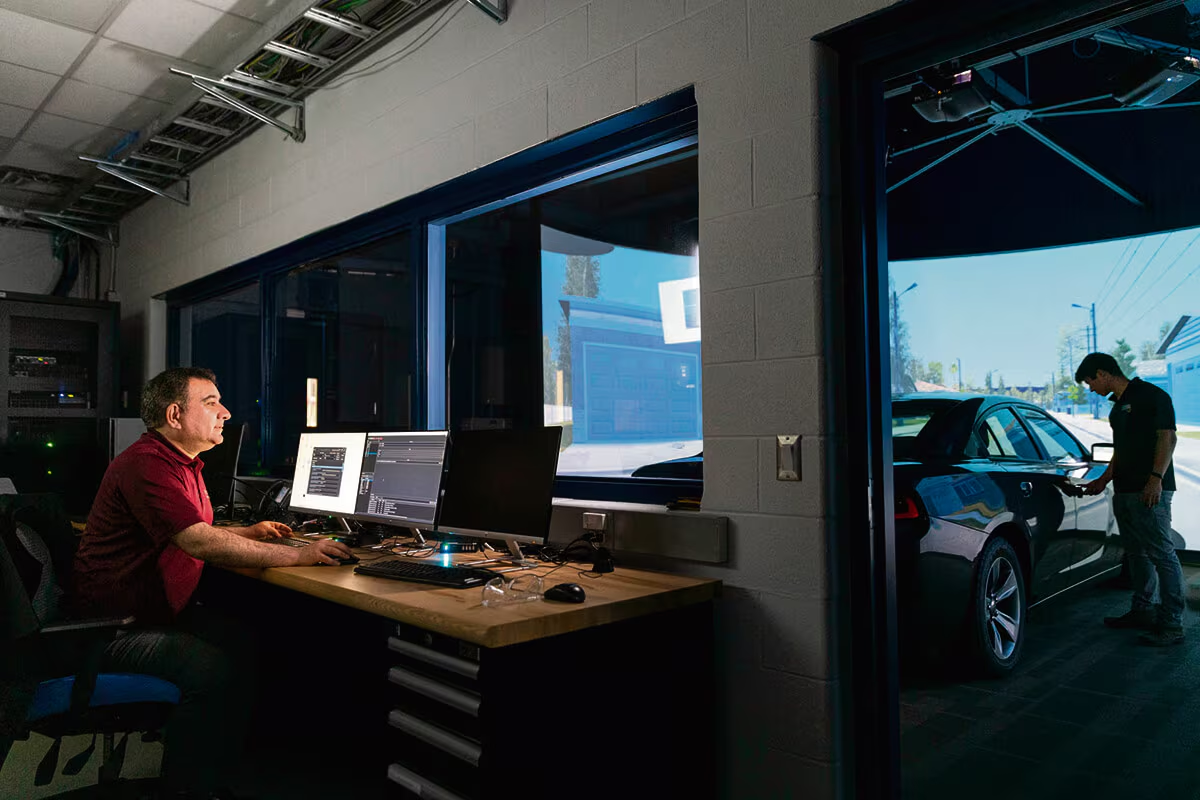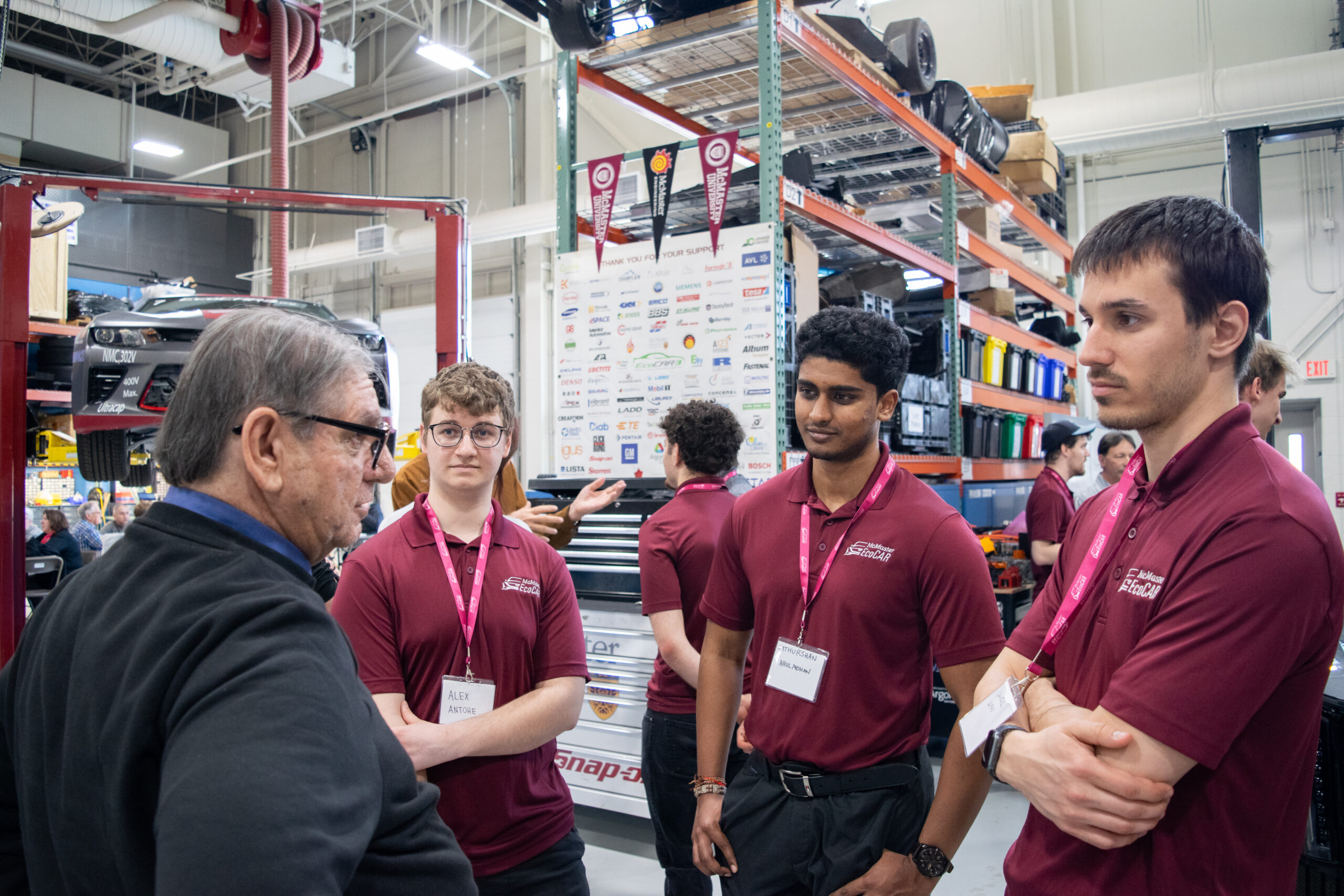Zhengyao (William) Wang received his B.Tech. in automation systems engineering from McMaster University in 2024. In January 2025, he began his M.A.Sc. in electrical and computer engineering at the McMaster Automotive Resource Centre (MARC). He joined the electrified powertrain team in collaboration with Stellantis, under the supervision of Dr. Ali Emadi. His current research focuses on model-based control strategies for electric vehicle powertrains and traction systems.
Full Profile
Zhengyao (William) Wang is a master of applied science student in electrical and computer engineering at McMaster University. He works under the supervision of Dr. Ali Emadi at the McMaster Automotive Resource Centre (MARC). His research supports the electrified powertrain team in collaboration with Stellantis. He focuses on control strategies and hardware-in-the-loop validation for next-generation electric vehicle (EV) powertrain and traction systems.
William developed a strong interest in electromechanical systems during his studies at McMaster. He completed the automation systems engineering program, earning a chemical engineering technology advanced diploma and a business management certificate. His interest in traction system design grew through graduate courses in power converters and adjustable-speed drive control. Outside the classroom, he is an avid rail enthusiast who studies and rides electric trains whenever possible.
For his undergraduate capstone project, William led the development of a CAN-based SCARA pick-and-place robot. He integrated STM32-based closed-loop stepper control with a custom Python/Qt6 GUI and a computer vision system. This project demonstrated his ability to combine embedded hardware, real-time control, and automation software into a production-ready prototype.
In 2022, William completed a six-month internship at KUKA Robotics China. He developed PROFEZIA, a Python/MATLAB tool that automates motor selection and performance simulation. He also handled traction motor selection and helped set up test benches for motors and resolvers. This work strengthened his skills in data acquisition, embedded testing platforms, and DAQ-device integration.
From 2023 to 2024, he worked as a research assistant with the electrified powertrain group under Dr. Emadi and Dr. Atriya Biswas at CERC@MARC. William ported a hybrid electric vehicle supervisory controller to NXP S32 hardware using the Model-Based Design Toolbox. He built a Simulink-based CAN-encoding framework to replace DBC workflows and supported battery-in-the-loop experiments. His work was documented in a whitebook now used by other researchers.
Today, as a full member of MARC’s electrified powertrain research team, William continues to advance electric drive module control, vehicle dynamometer applications, and hardware-in-the-loop validation for future EV powertrain and traction systems.

